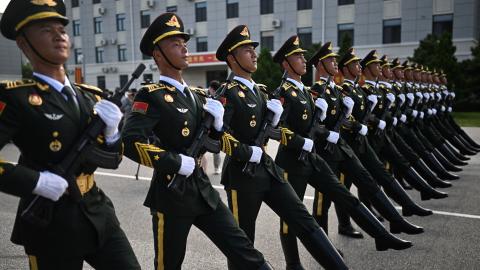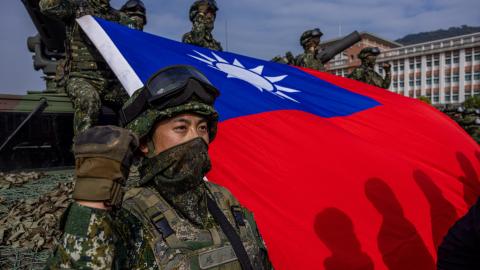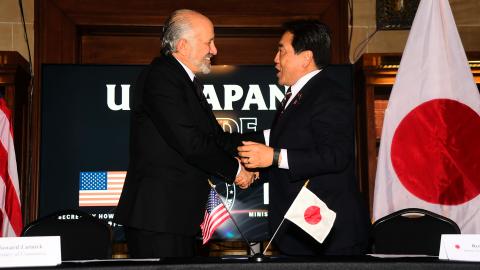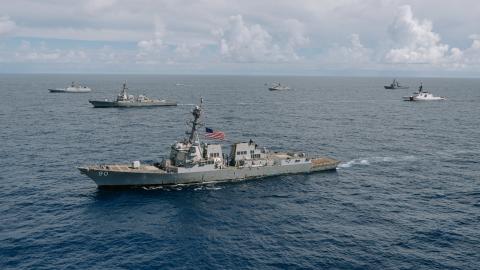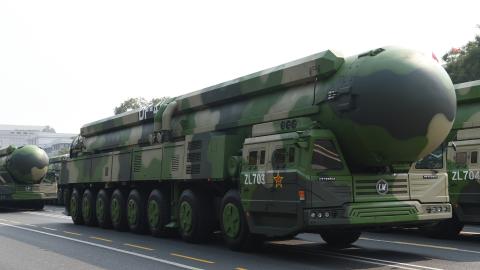For the past week, prominent voices in Australia have urged Washington to get used to the reality of China imminently reclaiming its long-held status as the most powerful Asian country in the region ahead of the US.
Many strategists such as Hugh White and former prime minister Paul Keating, who launched White's The China Choice, are asking whether established regional powers can sensibly adjust to the restoration of Chinese economic and military power.
It is a fair and timely question. But at least as important an inquiry is whether the Chinese Communist Party can itself adjust to China's rise. And one crucial first step is to accept that its selective and self-serving version of Chinese history is itself a barrier against a more co-operative and stable future for the region.
The CCP has spent millions of dollars producing and disseminating an official history of the rise of the Qing dynasty and its fall (from 1644 to 1912), before the founding of the modern-day People's Republic of China from 1949 onwards under the party's leadership. At its core is the notion that a once great China was brought to its knees and humiliated by outside powers, first by the British in the mid 1800s and then by the Japanese from the late 1800s onwards.
Many Chinese strategists argue that the US and its allies will do the same if China continues to rise. As the narrative goes, a strong and proud party is the only thing preventing outsiders from undermining and carving up the 5000-year-old civilisation-state.
The assault of the Qing dynasty by outside powers is historical fact, even if the country's weakness from 1949 onwards was almost all self-inflicted during the Mao Zedong years.
But the notion that there has been one enduring and permanent China struggling against avaricious outsiders across several millennia is a mischievous misrepresentation of history.
The reality is that what we now call China was forged through 2000 battles across 5000 years. To demonstrate the point, the Ming dynasty (1368-1644), which was founded by a Han Chinese rebel leader, was constantly attacked and eventually defeated by the ethnically distinct Manchus from the north, the result being the establishing of the Qing dynasty in 1644.
By the time the Qing dynasty fell in 1912, the dynasty was an additional four million square kilometres or almost twice the size of the landmass bequeathed to it by the Ming emperors.
The argument that China is unchanging and its dynasties never expansionist is nonsense. Like all imperial dynasties, expansion was a bloody, constant, opportunistic and ruthless affair.
When Mao took power in 1949, his goal was to re-establish the "greater China" of the Qing dynasty and he created the convenient myth that the entire Manchu empire was the permanent and enduring China. Following the so-called peaceful liberation of the East Turkestan Republic (now Xinjiang) in 1949 and the invasion of Tibet in 1950, this was achieved, promptly increasing the size of Mao's China by more than one-third.
No major foreign country disputes China's authority in Tibet and Xinjiang, only Beijing's treatment of ethnic minorities and suppression of religious freedoms. The point is that the PRC's rule over "greater China" is widely accepted, settled and uncontested. Since the early 1990s, apparently hostile outside powers have played an enormous role in helping China's economic rise for mutual benefit.
The idea that foreign powers such as the US remain ready and poised to prevent the party from fulfilling its so-called historical mission of recapturing greater China is a convenient fiction used to strengthen the party's domestic standing.
In reality, and with the exception of the goal of eliminating the legacy of Chiang Kai-shek Nationalists by retaking the now democratic and economically vibrant Taiwan, the party has already fulfilled its self-defined historic mission with little resistance from outside great powers.
China is rising in the most benign and stable external environment that it has faced for several hundred years. False histories in this context are dangerous because they encourage sentiments of misplaced victimhood and an exaggerated sense of vulnerability and entitlement. For example, China's sovereign claims to more than four-fifths of the South China Sea is driven by a desire to eliminate the chance of foreign interdiction of commercial shipping bound for its ports.
China's state-owned resource companies are also eyeing the apparently hydrocarbon-rich seabeds in the area, due to an overly acute sense of resource insecurity and a China-first sense of paranoia and entitlement.
This is all underpinned and fuelled by the fiction that China is simply restoring the proper order that has stood for millennia, ignoring the reality that the self-designated Middle Kingdom is only one of several historic kingdoms and polities with longstanding interests in the South China Sea.
It is significant that every major current and future Asian power - Japan, South Korea, India, Vietnam, Indonesia and Australia - remains wary of China in wanting a pre-eminent strategic role for the US in the region.
Perhaps America will need a new approach should China continue to rise rapidly during the next decade, and this is far from certain. But China's mindset also needs to change. In the interests of future co-operation and stability, the harder and more important first step is for the party to revise and update its inaccurate and self-serving history.


